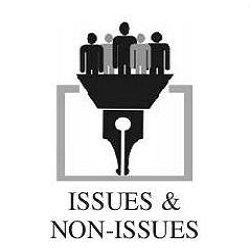Whither Sporting Culture- V
28 Sep 2024 10:01:01


By Vijay
phanshikar
If India is to become a sporting power that needs to be taken
seriously, then the country will have to make careful and
well-planned efforts to establish a vibrant sports culture in which sports are no longer only a pastime, but a serious pursuit of
excellence that would stand firm and tall and strong against world competition and
bring laurels
Mumbai, September 26 (PTI): Overjoyed by India’s remarkable dual triumph at the Chess Olympiad, five-time world champion Viswanathan Anand said that while this marked a promising beginning, there was still much work to be done for women’s chess in the country.
India scripted history on Sunday as both its men’s and women’s teams secured their first-ever titles, achieving a remarkable clean sweep of gold medals at the Chess Olympiad.
Responding to that remarkable feat, 54-year-old Viswanathan Anand who has inspired the current young crop of chess players, was delighted to witness history being created by them.
“First of all, great pride that it has happened. It’s not like the result caught me by surprise ... yet there is still a long way to go,” Anand said.
IF THERE is still a long way to go for Indian chess even after clean gold sweep at Chess Olympiad, as one goes by the assertion by the iconic Viswanathan Anand, then with only a handful of medals at the Olympic Games, Indian sports need to position themselves only at the starting line. In other and practical terms, Indian sports are just beginning to sprout and will take a long time to come of age.
Of course, there is a difference between yesterday and today. For, yesterday, Indian sports saw sort of flash-in-the-pan, sporadic performances by some truly motivated people mostly working on their own.
Today, the difference is that top-of-the-heap performers are conscious that the whole country is looking forward to their good showing. So, with the country’s best wishes, Indian sports are certainly better positioned for showing brilliance.
Yet, the way ahead is really long and arduous since the country is yet to evolve what is described as sporting culture. In other words, the larger Indian society is yet to start treating sports as a way of life (of sorts). If India is to become a sporting power that needs to be taken seriously, then the country will have to make careful and well-planned efforts to establish a vibrant sports culture in which sports are no longer only a pastime, but a serious pursuit of excellence that would stand firm and tall and strong against world competition and bring laurels -- and not just fulfill one part of the Olympic Motto, in effect, that we are here to participate regardless of winning or losing. India will have to evolve a goal-oriented sporting culture that would throw up talent that would bring back sporting glory from every possible international tournament -- by way of medals.
For that to happen, India is expected to travel a fairly long distance. It can be said safely that India will have to master sports sociology so that it throws up talent in different disciplines and grooms it to global excellence.
This means, a very conscious effort to promote sports at all levels -- from non-competitive play in childhood to purposeful engagement with sports with passage of years. This is easier said than achieved -- particularly when the larger society has not given much thought to this challenge of the sporting arenas in different disciplines.
Actually, India has a model that can stimulate similar activity in different sporting disciplines -- of management of cricket as a competitive activity. Cricket establishment in the country, thus, offers a truly great model to emulate, thanks to its great build-up.
With care and concern, a similar-to-cricket model will have to be worked upon in other sports as well -- from ground up, from the broad baseline of the pyramid to its pointed apex. Right from school entry-level, the children will have to be introduced to sports -- first for enjoyment with no strings attached, and then for competitive participation in competitive sports with a perfect goal-orientation in favour of winning matches and securing medals and trophies.
That also means the schools in India will have to be given a special orientation for sports. When children understand the importance of sports and the unavoidability of participation, then the societal atmosphere, too, will go through a positive transformation. Once that starts happening, a new era in Indian sports will begin.
Participation in modern sports competition also takes a lot of money for preparation.
Those resources will have to build nationally -- by way of appropriate funding of sports activity and training of young talent painstakingly at least for 12-15 years in a go. A conscious effort will have to be made by the larger society to motivate youngsters in the family to take to sports as a matter of religion, so to say. Everybody will certainly not bring medals from international contests, but the orientation should be of that kind -- geared for unmatched excellence.
True, the Government will have to play a key role in the whole effort. But the larger society will also have to demonstrate its missionary willingness to build sporting talent at multiple levels. This will not be an abstract effort -- it will be a concrete and well-organised activity with collective commitment of the society.
(Concluded)
